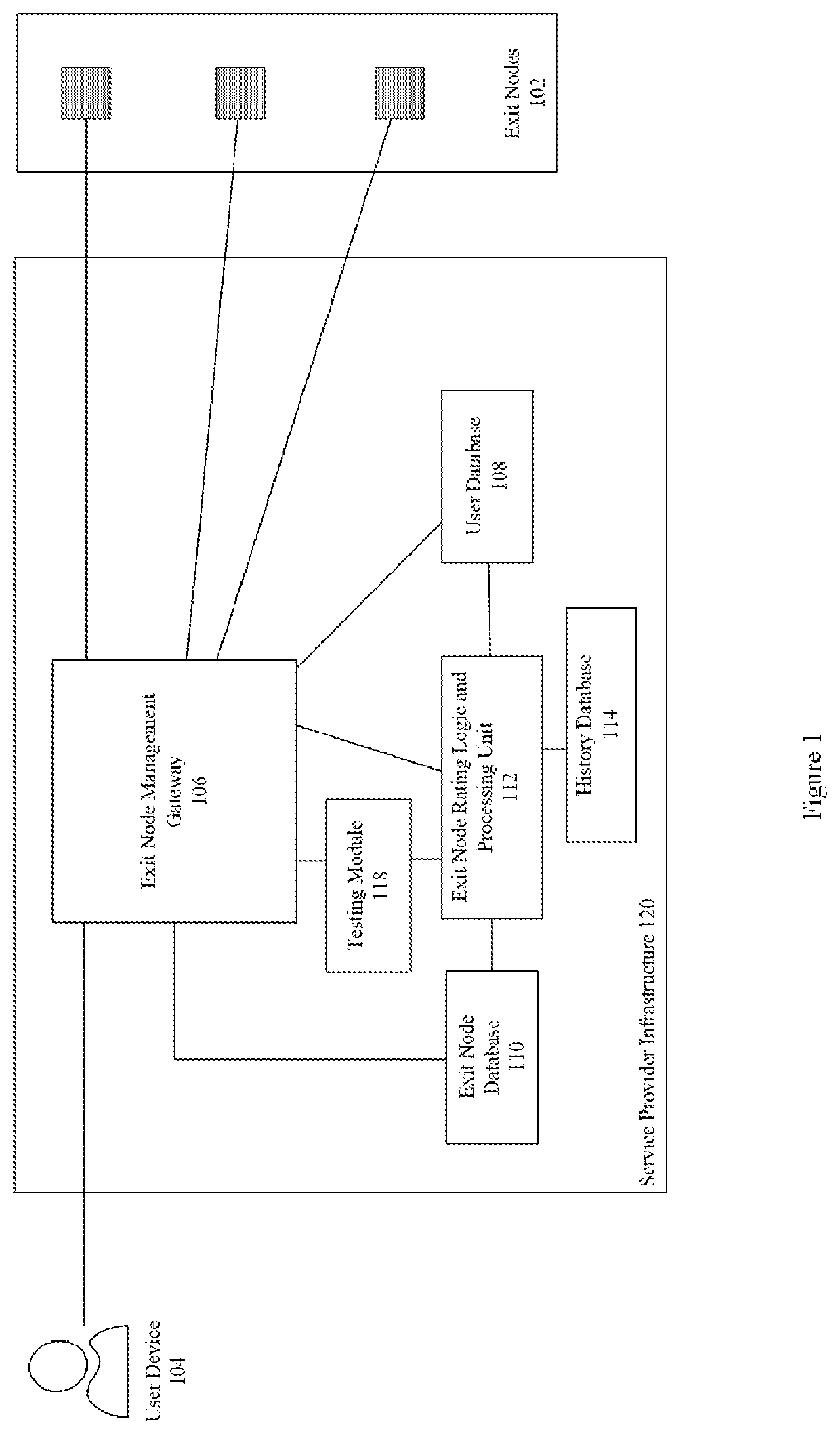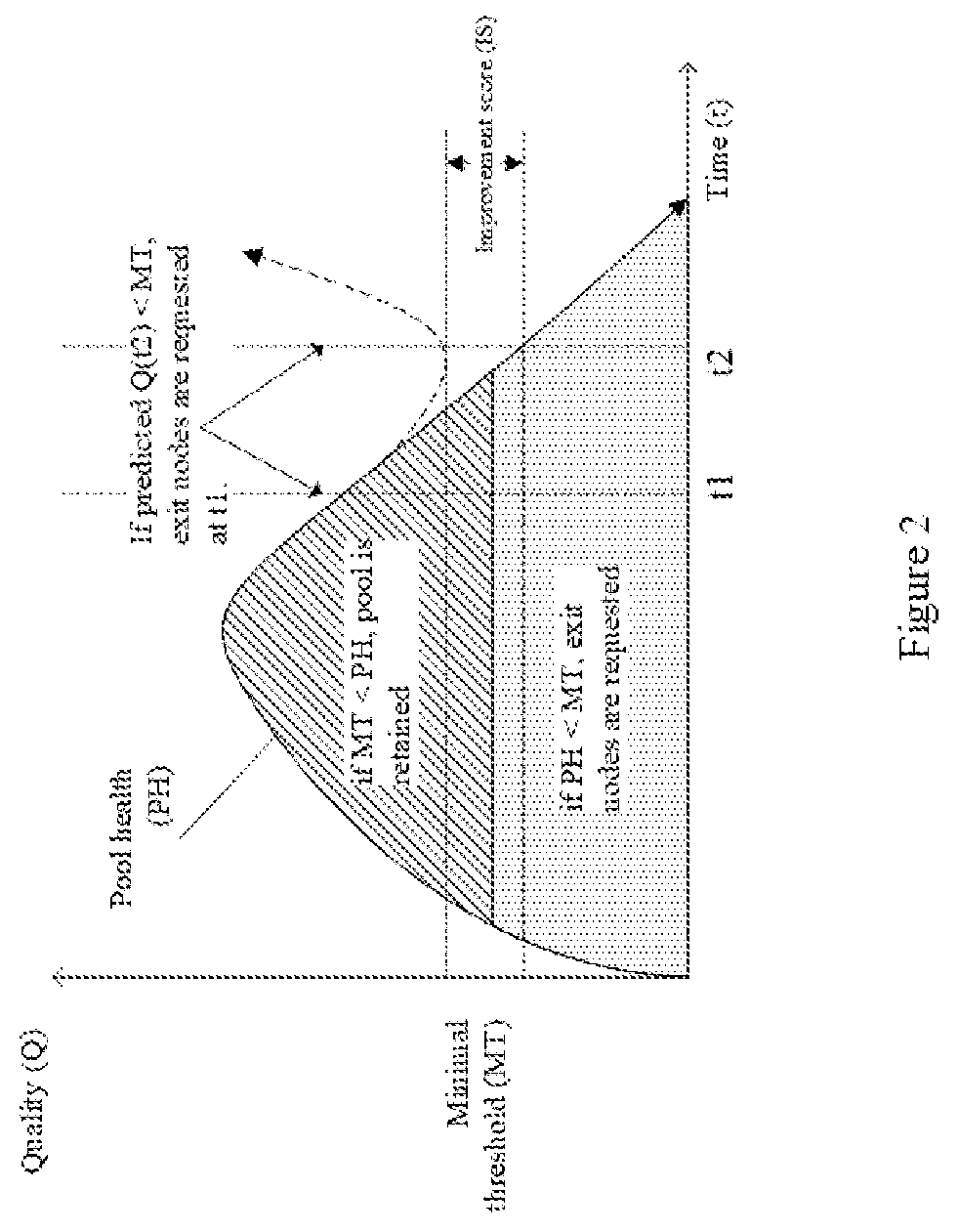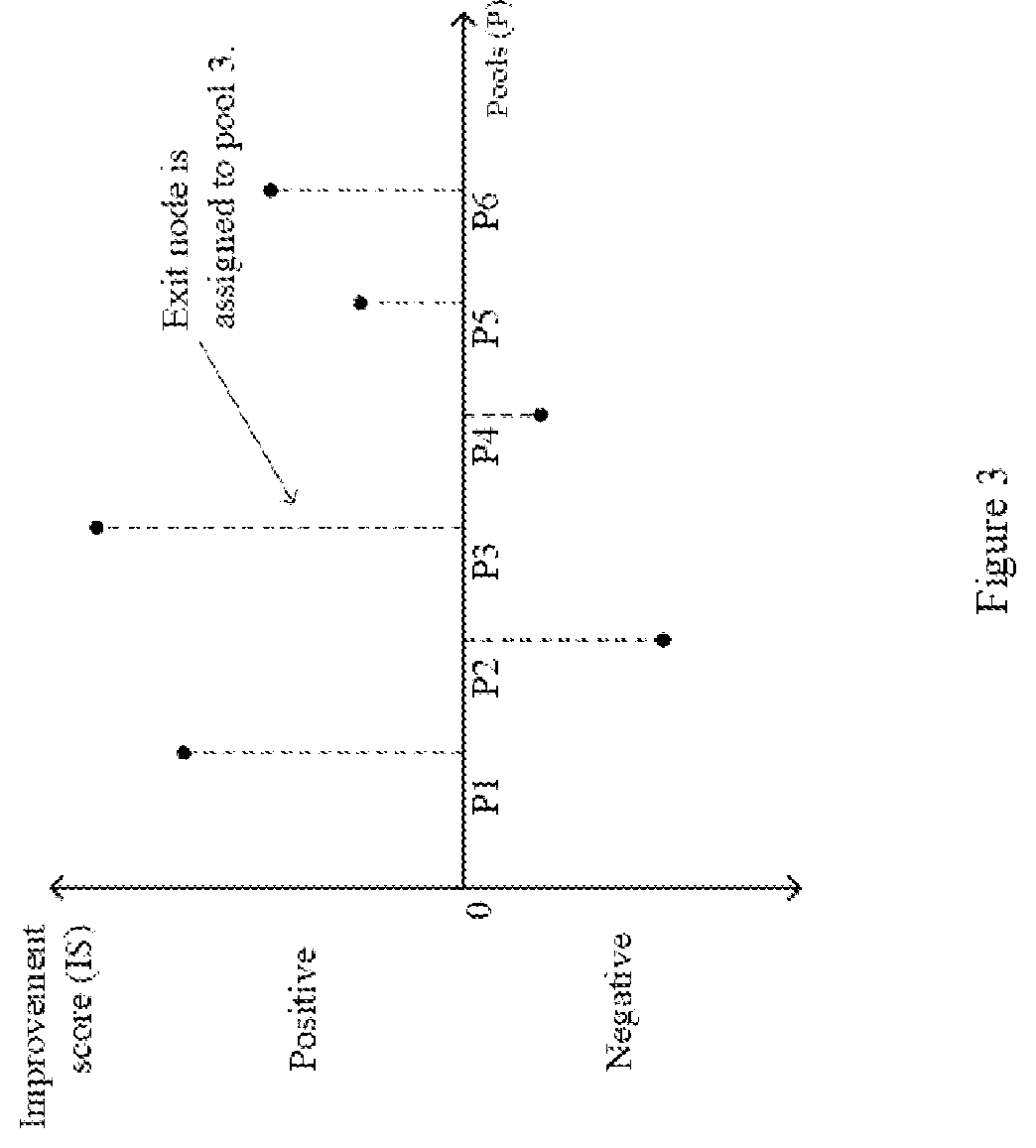Curating proxy server pools
a proxy server and pool technology, applied in the field of data scraping, can solve the problems of not always being able to use such a proxy to make subsequent requests, limit the types and formats of data, and not always being able to provide apis for the needed data, etc., and achieve the effect of reducing performance and maximizing efficient utilization of exit nodes
- Summary
- Abstract
- Description
- Claims
- Application Information
AI Technical Summary
Benefits of technology
Problems solved by technology
Method used
Image
Examples
Embodiment Construction
[0038]Some general terminology descriptions may be helpful and are included herein for convenience and are intended to be interpreted in the broadest possible interpretation.
[0039]Exit Node Management Gateway (also Gateway) 106—is a processing unit within the service provider infrastructure that communicates with both the User's Device that sends requests to it and with Exit Nodes that ultimately service these requests. Furthermore, it stores and consults results in the User Database about exit node pool formation. It can also trigger actions in the Exit Node Rating Logic And Processing Unit (shorter—Logic Unit).
[0040]User Database 108—is a memory storage that stores information about the User Device's service level and requests. Service level can be formulated through a Service Level Agreement (SLA) between the user and the service provider. Examples of SLA parameters include agreed service targets, criteria for target fulfilment evaluation, roles and responsibilities of Service Pr...
PUM
 Login to View More
Login to View More Abstract
Description
Claims
Application Information
 Login to View More
Login to View More - R&D
- Intellectual Property
- Life Sciences
- Materials
- Tech Scout
- Unparalleled Data Quality
- Higher Quality Content
- 60% Fewer Hallucinations
Browse by: Latest US Patents, China's latest patents, Technical Efficacy Thesaurus, Application Domain, Technology Topic, Popular Technical Reports.
© 2025 PatSnap. All rights reserved.Legal|Privacy policy|Modern Slavery Act Transparency Statement|Sitemap|About US| Contact US: help@patsnap.com



